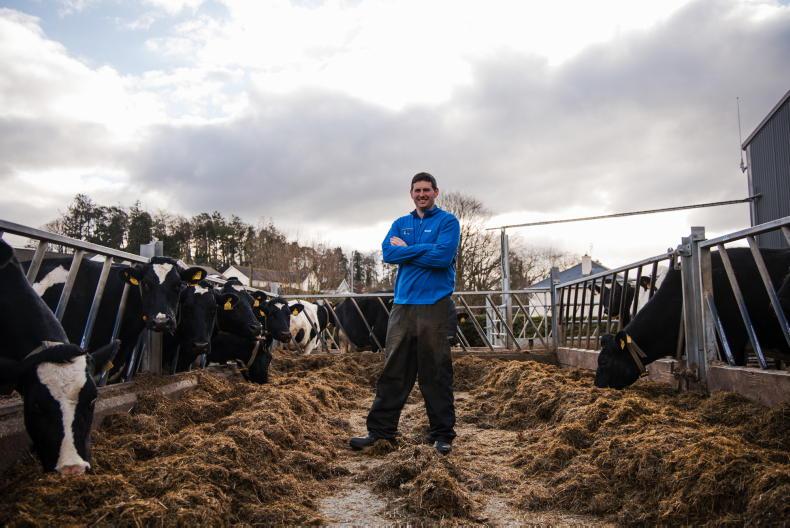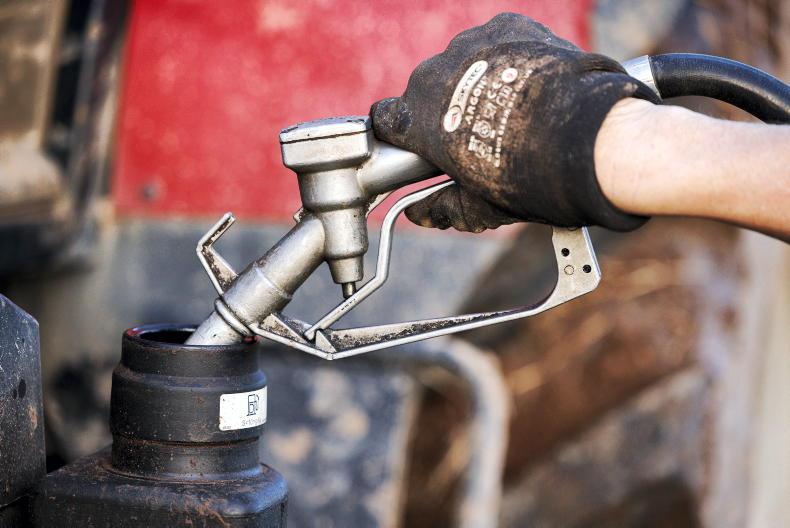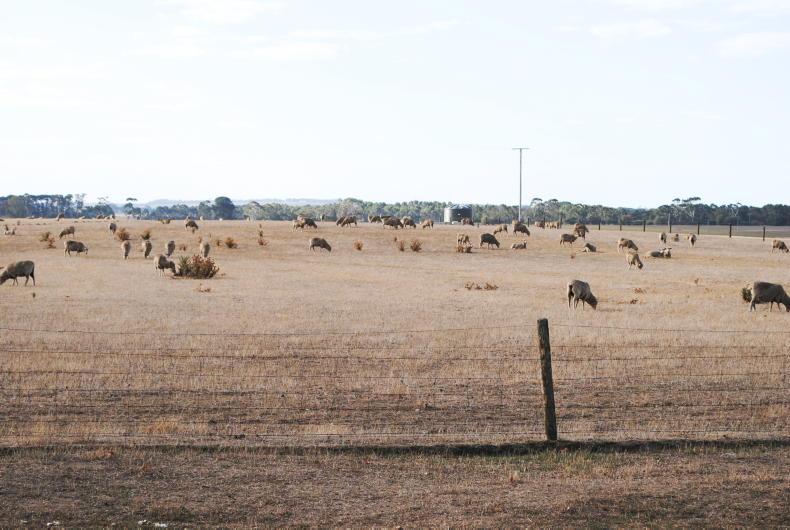We continue to watch in horror as Vladimir Putin intensifies his assault on the Ukrainian people. The lack of regard for civilian life is simply beyond comprehension.
But as we watch the suffering in Ukraine we should do so realising that Putin’s actions have the potential to wreak the same devastation on many more countries in the months ahead. It will not be in the form of a military onslaught but by plunging millions more people into starvation – the technical and perhaps more palatable term being “acute food insecurity”.
Any hope that Russia’s advance on Ukraine would be short-lived or deterred by global sanctions has disappeared.
It is now clear that a full-scale invasion of the country is under way. With this disappears any hope that the global food market will escape the impact of this bloody war. In the same way the invasion of Ukraine has destabilised energy markets, global food markets will become severely challenged in the months ahead.
The impact will be twofold – a collapse in the volume of grain exported on to global markets from Ukraine coupled with lower crop yields globally, due to a lack of chemical fertiliser in the critical months ahead. Grain is not just instrumental in the production of bread but also in underpinning the global production of meat and dairy proteins.
Ukraine and Russia combined account for 29% of global wheat exports, 26% of barley exports, 20% of maize exports and 65% of sunflower exports.
It is likely that Russia will be in a position to continue to export grains onto the global market. While sanctions will limit trade with the west, China, to which Russia has rail access, is likely to remain an important market.
However, the situation in Ukraine is very different.
At a basic level it is uncertain whether crops will actually be planted. We understand that in the southern region of the country planting of crops has largely been abandoned. Further north, where planting would traditionally not begin for another three weeks, there are concerns over the availability of labour and key farm inputs such as fertiliser and crop protection tools.
Even in the event that crops are planted it is uncertain whether at the end of the war the port infrastructure will be in place to allow these grains access to international markets. Traditionally, Ukraine has had limited capacity to store grains within the country.
Along with having to deal with a collapse in the volume of Ukrainian grains on international markets next autumn, the lack of access globally to chemical fertilisers in the months ahead could have a devastating impact on global crop yields.
Alone Russia is responsible for 25% of nitrogen exports, 16% of phosphate exports and 20% of potash exports. While there is the some potential for countries to temporarily reduce the need for potash and phosphate (for some crops), nitrogen is an essential in driving yields.
The lack of access to nitrogen from Russia, which is now considering implementing a complete ban on all exports, has been compounded by the fact that China has imposed restrictions on fertiliser exports to the end of June over concerns around domestic availability. Together China and Russia account for 50% of global nitrogen exports.
The result has been an international scramble to secure fertiliser supplies at hugely inflated prices – typically running 300% ahead of the year previous.
Brazil, a global powerhouse in the export of both grains and beef, is dependent on imports for 85% of its fertiliser requirements, with 25% of this having traditionally been supplied by Russia.
Europe is equally exposed.
Importers are now trying to secure access to fertiliser from Egypt and north Africa ahead of peak demand as the spring planting season begins and winter crops require a top dressing of fertiliser to kickstart their growth. The ability to ramp up nitrogen production within the EU will be curtailed by soaring gas prices – having doubled over the past week.
This unprecedented level of uncertainty around global production comes as the availability of stock within main exporting regions has fallen sharply. This in part reflects the extent to which China has been buying up stocks in recent years. China imported 164.5m metric tonnes of grains in 2021, an 18.1% increase on the year previous. Figures from the International Grains Council show that China currently accounts for 50% of world wheat stocks and 38% of world soya bean stocks.
Limited global stocks combined with an uncertain outlook around future harvests has pushed the United Nations Food and Agriculture Organisation’s (FAO) food price index to a record high. The monthly index released on Friday averaged 140.7 points, an increase of 3.9% on January and 24.1% higher than the year previous.
Within the EU and Ireland we will of course be in a position to effectively buy our way out of any potential food shortage – albeit that the era of spending less than 10-12% of household income on food may be over. However, there will be many countries that will not have the same luxury.
The Middle East, north Africa, south and southeast Asia, regions of the world where over 700m people are classed as unnourished, all are heavily dependent on wheat imports, mainly from Ukraine and Russia. The ability of these countries to seek alternative sources in a highly competitive global market will not exist.
In this context, it is highly concerning to hear some use what could be a once in a generational crisis in global food production as a platform to continue to champion the need for Ireland to limit its food production capacity – the spike in fertiliser prices used to validate an agenda to push more farmers into lower-output systems.
To adopt such an approach at a time when global food security is under sever threat is reckless.
Of course, we cannot lose sight of the climate change challenges that many of the same countries facing food insecurity are also grappling with. But these countries are facing an immediate crisis in relation to food availability in the coming months.
Ireland along with the EU must mobilise its highly productive farmland to ensure it optimises its food production capacity in the years ahead. It must not simply use its economic strength to mop up the global grain market at the expense of poorer and food-insecure nations.
Those who claim Ireland is not obliged to feed 40m people are right – we do not have an obligation, but we do have a moral duty to ensure Ireland plays its part fully in ensuring there is enough food in the months ahead to feed the world.
Given climatic conditions and land type this will be primarily in the form of maximising the output of meat and dairy from our grass-based systems.
Read more
Editorial: unthinkable war demands policy rethink on EU food security
Farming in Ukraine: ‘We were getting ready to plant, now we fight a war’
We continue to watch in horror as Vladimir Putin intensifies his assault on the Ukrainian people. The lack of regard for civilian life is simply beyond comprehension.
But as we watch the suffering in Ukraine we should do so realising that Putin’s actions have the potential to wreak the same devastation on many more countries in the months ahead. It will not be in the form of a military onslaught but by plunging millions more people into starvation – the technical and perhaps more palatable term being “acute food insecurity”.
Any hope that Russia’s advance on Ukraine would be short-lived or deterred by global sanctions has disappeared.
It is now clear that a full-scale invasion of the country is under way. With this disappears any hope that the global food market will escape the impact of this bloody war. In the same way the invasion of Ukraine has destabilised energy markets, global food markets will become severely challenged in the months ahead.
The impact will be twofold – a collapse in the volume of grain exported on to global markets from Ukraine coupled with lower crop yields globally, due to a lack of chemical fertiliser in the critical months ahead. Grain is not just instrumental in the production of bread but also in underpinning the global production of meat and dairy proteins.
Ukraine and Russia combined account for 29% of global wheat exports, 26% of barley exports, 20% of maize exports and 65% of sunflower exports.
It is likely that Russia will be in a position to continue to export grains onto the global market. While sanctions will limit trade with the west, China, to which Russia has rail access, is likely to remain an important market.
However, the situation in Ukraine is very different.
At a basic level it is uncertain whether crops will actually be planted. We understand that in the southern region of the country planting of crops has largely been abandoned. Further north, where planting would traditionally not begin for another three weeks, there are concerns over the availability of labour and key farm inputs such as fertiliser and crop protection tools.
Even in the event that crops are planted it is uncertain whether at the end of the war the port infrastructure will be in place to allow these grains access to international markets. Traditionally, Ukraine has had limited capacity to store grains within the country.
Along with having to deal with a collapse in the volume of Ukrainian grains on international markets next autumn, the lack of access globally to chemical fertilisers in the months ahead could have a devastating impact on global crop yields.
Alone Russia is responsible for 25% of nitrogen exports, 16% of phosphate exports and 20% of potash exports. While there is the some potential for countries to temporarily reduce the need for potash and phosphate (for some crops), nitrogen is an essential in driving yields.
The lack of access to nitrogen from Russia, which is now considering implementing a complete ban on all exports, has been compounded by the fact that China has imposed restrictions on fertiliser exports to the end of June over concerns around domestic availability. Together China and Russia account for 50% of global nitrogen exports.
The result has been an international scramble to secure fertiliser supplies at hugely inflated prices – typically running 300% ahead of the year previous.
Brazil, a global powerhouse in the export of both grains and beef, is dependent on imports for 85% of its fertiliser requirements, with 25% of this having traditionally been supplied by Russia.
Europe is equally exposed.
Importers are now trying to secure access to fertiliser from Egypt and north Africa ahead of peak demand as the spring planting season begins and winter crops require a top dressing of fertiliser to kickstart their growth. The ability to ramp up nitrogen production within the EU will be curtailed by soaring gas prices – having doubled over the past week.
This unprecedented level of uncertainty around global production comes as the availability of stock within main exporting regions has fallen sharply. This in part reflects the extent to which China has been buying up stocks in recent years. China imported 164.5m metric tonnes of grains in 2021, an 18.1% increase on the year previous. Figures from the International Grains Council show that China currently accounts for 50% of world wheat stocks and 38% of world soya bean stocks.
Limited global stocks combined with an uncertain outlook around future harvests has pushed the United Nations Food and Agriculture Organisation’s (FAO) food price index to a record high. The monthly index released on Friday averaged 140.7 points, an increase of 3.9% on January and 24.1% higher than the year previous.
Within the EU and Ireland we will of course be in a position to effectively buy our way out of any potential food shortage – albeit that the era of spending less than 10-12% of household income on food may be over. However, there will be many countries that will not have the same luxury.
The Middle East, north Africa, south and southeast Asia, regions of the world where over 700m people are classed as unnourished, all are heavily dependent on wheat imports, mainly from Ukraine and Russia. The ability of these countries to seek alternative sources in a highly competitive global market will not exist.
In this context, it is highly concerning to hear some use what could be a once in a generational crisis in global food production as a platform to continue to champion the need for Ireland to limit its food production capacity – the spike in fertiliser prices used to validate an agenda to push more farmers into lower-output systems.
To adopt such an approach at a time when global food security is under sever threat is reckless.
Of course, we cannot lose sight of the climate change challenges that many of the same countries facing food insecurity are also grappling with. But these countries are facing an immediate crisis in relation to food availability in the coming months.
Ireland along with the EU must mobilise its highly productive farmland to ensure it optimises its food production capacity in the years ahead. It must not simply use its economic strength to mop up the global grain market at the expense of poorer and food-insecure nations.
Those who claim Ireland is not obliged to feed 40m people are right – we do not have an obligation, but we do have a moral duty to ensure Ireland plays its part fully in ensuring there is enough food in the months ahead to feed the world.
Given climatic conditions and land type this will be primarily in the form of maximising the output of meat and dairy from our grass-based systems.
Read more
Editorial: unthinkable war demands policy rethink on EU food security
Farming in Ukraine: ‘We were getting ready to plant, now we fight a war’










SHARING OPTIONS